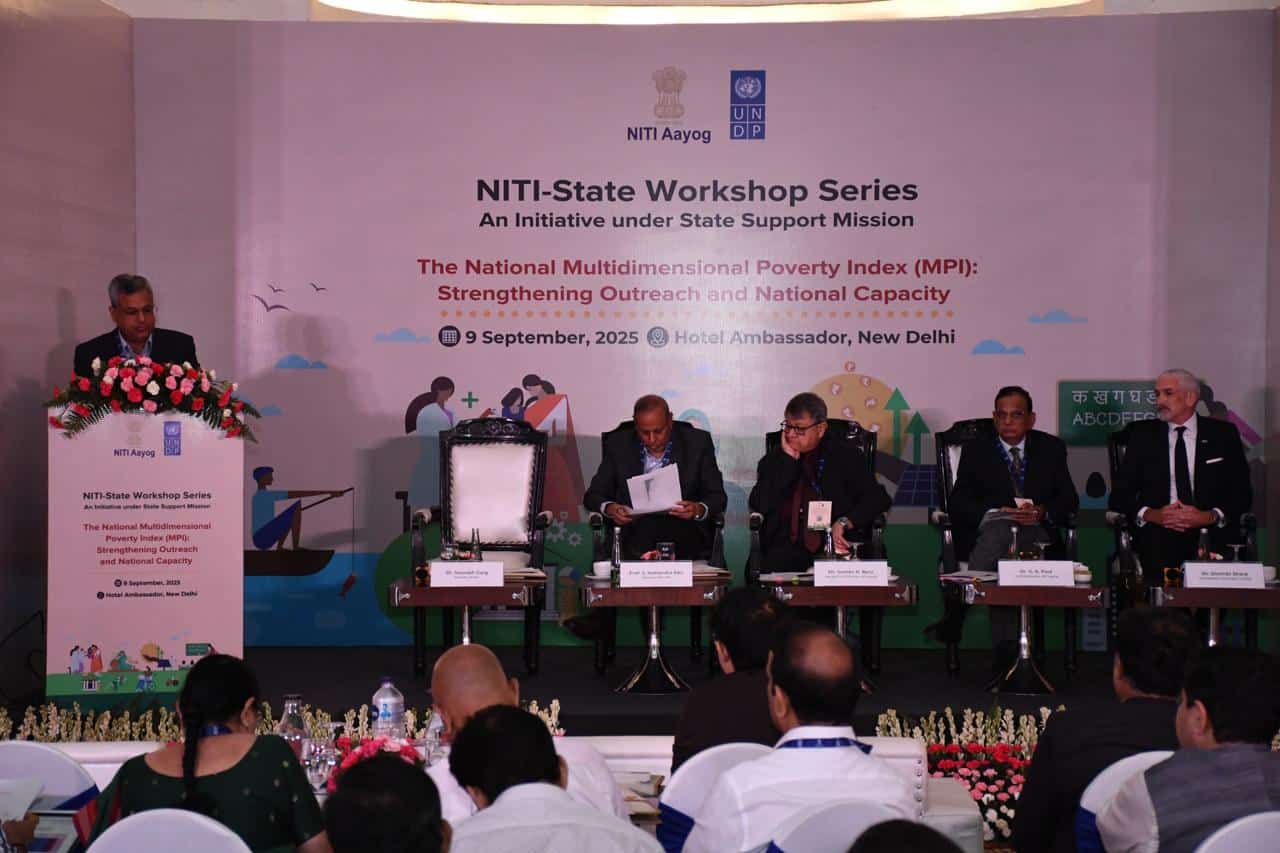NITI Aayog and UNDP Host National Workshop on Multidimensional Poverty Index in New Delhi

A recent workshop in New Delhi focused on India’s Multidimensional Poverty Index (MPI), emphasizing its calculation methodology and its role in poverty alleviation. Organized by NITI Aayog in collaboration with the United Nations Development Programme, the event gathered senior officials from 30 states and union territories, along with representatives from various ministries and think tanks. The discussions highlighted the significance of MPI in enhancing governance and achieving Sustainable Development Goals (SDGs).
Workshop Overview and Objectives
The one-day National Workshop titled ‘The National Multidimensional Poverty Index (MPI): Strengthening Outreach and National Capacity’ took place on September 9, 2025. This event was part of the NITI–State workshop series under the State Support Mission. The primary aim was to strengthen the understanding and application of the MPI across India. Participants included senior government officials, UN agency representatives, and experts from various think tanks, all of whom contributed to a comprehensive dialogue on poverty measurement and reduction strategies.
The workshop’s agenda was designed to enhance the capacity of states in utilizing MPI data for targeted social protection and poverty alleviation initiatives. By focusing on the technical aspects of MPI, the workshop aimed to equip participants with the necessary tools to implement effective poverty reduction strategies. The collaborative nature of the event fostered an environment for sharing best practices and innovative ideas among various stakeholders.
Keynote Addresses and Insights
The inaugural session was chaired by Sh. Suman K. Bery, Vice Chairman of NITI Aayog. It featured notable speakers, including Prof. S. Mahendra Dev, Dr. V. K. Paul, and Sh. Shombi Sharp, who underscored the importance of MPI as a critical instrument for precise poverty reduction. They emphasized that a robust understanding of MPI can lead to stronger governance and better alignment with the SDGs.
The discussions highlighted how MPI can serve as a valuable tool for policymakers in designing and implementing effective poverty alleviation programs. The speakers shared insights on the necessity of data-driven decision-making and the potential for integrating MPI into existing social protection frameworks. This approach aims to enhance the effectiveness of government initiatives and ensure that no one is left behind in the fight against poverty.
Panel Discussion on Data Utilization
A significant portion of the workshop was dedicated to a panel discussion focused on how states are currently leveraging data for social protection and poverty alleviation. Panelists shared their experiences and insights on various initiatives, such as Tamil Nadu’s Chief Minister’s Breakfast Scheme and Uttar Pradesh’s Sambhav Abhiyan. These examples illustrated the practical application of data in addressing poverty and improving social welfare.
The discussion also explored the potential for reducing the frequency of surveys and complementing existing data sources to enhance the effectiveness of poverty alleviation programs. By sharing their experiences, panelists provided valuable lessons on the importance of data in informing policy decisions and program design. This collaborative exchange of ideas aimed to inspire more effective approaches to tackling multidimensional poverty across India.
Technical Methodology and Practical Exercises
The workshop concluded with a session dedicated to the Technical Methodology of the National MPI and the Leave No One Behind (LNOB) analysis of multidimensional poverty in India. This session aimed to deepen participants’ understanding of the technical aspects of MPI and its implications for policy and practice.
To reinforce the learning experience, the workshop included a practical exercise using a sample dataset to demonstrate MPI calculations in Excel. This hands-on approach allowed participants to engage with the data and better understand the nuances involved in MPI calculations. By the end of the workshop, attendees were equipped with enhanced knowledge and skills to apply MPI effectively in their respective states, contributing to the broader goal of poverty reduction in India.
Observer Voice is the one stop site for National, International news, Sports, Editor’s Choice, Art/culture contents, Quotes and much more. We also cover historical contents. Historical contents includes World History, Indian History, and what happened today. The website also covers Entertainment across the India and World.
Follow Us on Twitter, Instagram, Facebook, & LinkedIn

